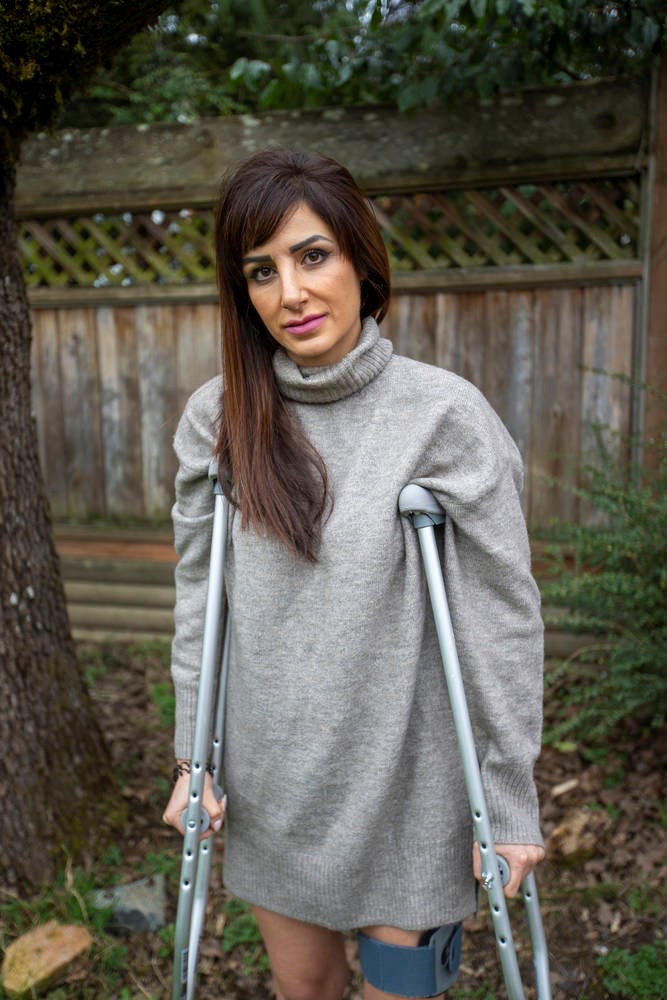A jogger who was attacked from behind by a coyote says people should be told not to use Stanley Park at all until aggressive coyotes are under control.
Azi Ramezani, who is recovering at her parents’ home in Victoria, was bitten by a coyote while on a sidewalk in the Vancouver park about 5 p.m. on Jan. 21. She’s looking at a recovery period of six months.
“I think they should have told people from the beginning to stay away from Stanley Park until they figure the situation out — not just closing some trails,” she said. “You don’t expect an animal to attack you by a road with other people and traffic.”
Conservation officials have said there have been 15 attacks on people, mostly on runners, since Dec. 1, 2020, in Stanley Park.
According to the Stanley Park Ecology Society, no other region of Metro Vancouver has reported similar coyote attacks during the same period.
Ramezani said she has been running in Stanley Park for a decade and has never had an encounter with any animal. She had heard about coyote attacks in the park and knew that conservation officials had already killed two coyotes. She said she heard a growl just before she was bitten.
“This coyote came out of the trail from the opposite side and crossed the road and came right behind me and bit my right leg,” she said. “The animal bites you really hard. It’s not just a nip. When they bite, the teeth go deeply into your skin.”
The coyote, she said, went for her bent knee so she buckled and immediately fell to the sidewalk.
“I thought when I couldn’t get back up that it was going to go for my face. I just started screaming,” Ramezani said. “I was scared for my life. I didn’t know what to do if it came back for me because I was down on the ground.”
Some cyclists stopped and stayed with her until emergency help arrived.
She was later visited by a conservation officer, who took samples for a DNA test from her ripped clothing, she was told, so they could know which animal to go after.
“The animal was a full-size, mature coyote based on what I was told,” Ramezani said.
During the attack, she fell a second time, which detached her hamstring from her sit bone. She had surgery Feb. 6 to reattach the hamstring and release compression on her sciatic nerve.
“Basically, I’m in bed all the time,” she said. “I can’t sit, I can’t walk. I can’t do anything. I’m in a lot of pain. It’s been a big burden physically, financially, emotionally.”
A teacher’s assistant, Ramezani is now out of work and, with greatly reduced mobility, she’s had to move back in with her parents in Victoria. She’s started an online fundraiser to raise $10,000 to cover the cost of her rehabilitation. Even then, there’s a chance she won’t recover fully to the active person she was before, she said.
“I just want the public to know that these attacks are very, very serious. The welfare of the animal is very important to me. What makes me sad is that people are getting hurt as well as the animals,” Ramezani said.
“We coexisted with these animals for years. All of a sudden, we’ve been seeing this behaviour since December, how is it that it hasn’t been stopped?”



